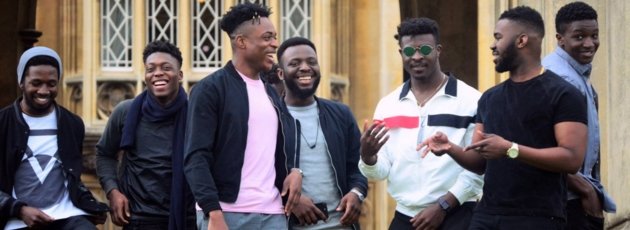- Home
- News & Blogs
- About Us
- What We Do
- Our Communities
- Info Centre
- Press
- Contact
- Archive 2019
- 2015 Elections: 11 new BME MP’s make history
- 70th Anniversary of the Partition of India
- Black Church Manifesto Questionnaire
- Brett Bailey: Exhibit B
- Briefing Paper: Ethnic Minorities in Politics and Public Life
- Civil Rights Leader Ratna Lachman dies
- ELLE Magazine: Young, Gifted, and Black
- External Jobs
- FeaturedVideo
- FeaturedVideo
- FeaturedVideo
- Gary Younge Book Sale
- George Osborne's budget increases racial disadvantage
- Goldsmiths Students' Union External Trustee
- International Commissioners condemn the appalling murder of Tyre Nichols
- Iqbal Wahhab OBE empowers Togo prisoners
- Job Vacancy: Head of Campaigns and Communications
- Media and Public Relations Officer for Jean Lambert MEP (full-time)
- Number 10 statement - race disparity unit
- Pathway to Success 2022
- Please donate £10 or more
- Rashan Charles had no Illegal Drugs
- Serena Williams: Black women should demand equal pay
- Thank you for your donation
- The Colour of Power 2021
- The Power of Poetry
- The UK election voter registration countdown begins now
- Volunteering roles at Community Alliance Lewisham (CAL)
David Lammy accuses Oxford of social and racial apartheid
Just days after unveiling a plaque honouring its first black student, Oxford colleges are being accused of “social apartheid” and discriminative admissions practises by former education minister David Lammy.
Data regarding Oxford’s admissions numbers had been requested by Lammy in 2016, and similar data has not been released since 2010. It was not until this week, however, that Oxford released data showing that 10 out of 32 of its colleges did not grant a place to any black British students with A-levels in 2015. Oriel College, in particular, has only accepted one such student in the last six years. Oxford is not an outlier among elite British universities – Cambridge has revealed through its own 2015 data that six of its colleges did not admit any black British A-level pupils, either. Cambridge provided this data immediately upon Lammy’s request in 2016; Oxford only acquiesced shortly after being told that the Guardian was formulating a story.
Lammy stated that these numbers are not representative of the United Kingdom’s population. The data shows that only 1.5% of the acceptances to Oxford and Cambridge to British A-level students went to black British applicants. He observed that “there are almost 400 black students getting three As at A-level or better every year” but so few of these potential candidates feel compelled to apply to Oxford or Cambridge. The most recent UK census reports that approximately 3% of the UK’s population identified as black, so these numbers, according to Lammy, are far too low.
In May 2017, a viral photo circulated Facebook featuring 14 black male students from Cambridge posing together. The post was shared in an effort to encourage more black applicants to consider Cambridge – a university that had only accepted 15 black, male students to its undergraduate classes in 2015. It is crucial that “we let young black people know that this is something they can aspire to”, the post states.
The new data also reveals that socially disadvantaged regions of north-west England and Wales have been neglected by recruitment efforts by both universities to widen their applicant pool outside of south England. Lammy has called for “[d]ifficult questions” to be asked, including whether or not there is an institutionalized bias innate in the admissions processes of these elite universities “working against talented young people from ethnic minority backgrounds”. A spokesperson for Oxford responded that correcting this issue and diversifying Oxford’s colleges would be “a long journey that requires huge, joined-up effort across society – including from leading universities like Oxford – to address serious inequalities”.
The spokesperson went on to say that Oxford has been working with organisations like Target Oxbridge and the recently founded Oxford black alumni network to market the university as a place where talented, qualified black candidates can feel comfortable and thrive.
Ayan Goran
